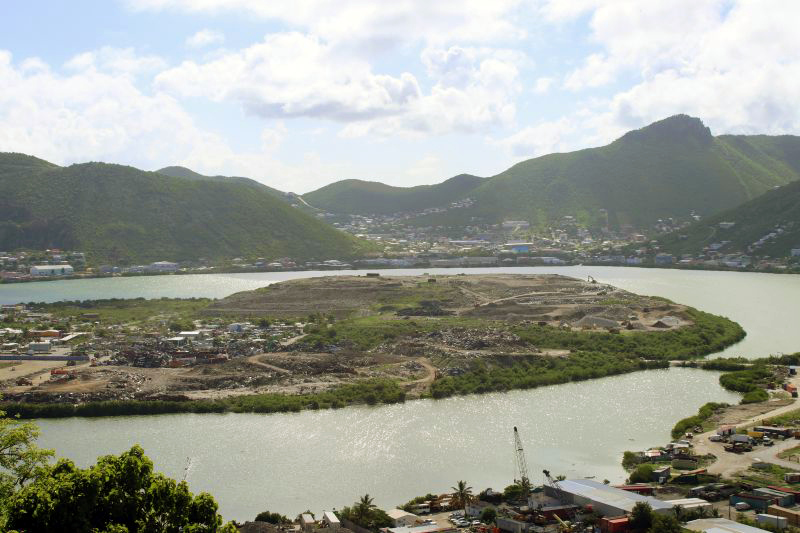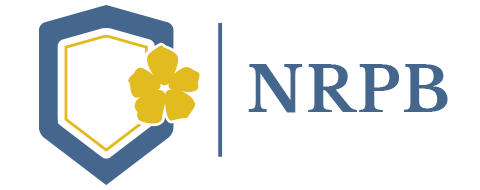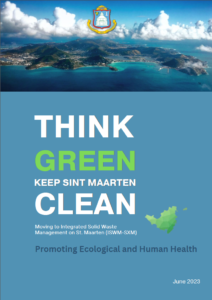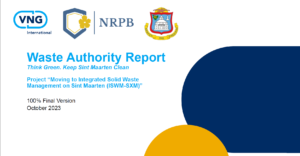Integrated Solid Waste Management

The Government of Sint Maarten is committed to transforming its current waste management practices into a sustainable Integrated Solid Waste Management (ISWM) system. This system will prioritize waste prevention, reduction, reuse, recycling, and controlled disposal, significantly reducing the island’s dependence on landfills. Key to this transformation is the establishment of a Waste Authority.
Phase One
Phase One of the ISWM-SXM project laid the foundation for Sint Maarten’s transition to a more comprehensive waste management system. It focused on building the institutional framework for managing the current practice of collection and disposal at Pond Island, and transitioning to an ISWM system. Key actions included:
- Outlining the structure of a Waste Authority to oversee solid waste management.
- Providing advice on the financing and legislation required to support the establishment of the Waste Authority.
- Developing a communication framework to raise public awareness and facilitate the transition to an ISWM system.
This phase also initiated the drafting of a national vision for integrated solid waste management by 2050, aiming to create a greener, more sustainable Sint Maarten. The project worked closely with VNG International and the NRPB to ensure alignment with best practices and international standards.
Phase Two continues the progress made in Phase One by focusing on the practical implementation of reforms and solid waste management enhancements. This phase aims to strengthen four key areas:
- Financial sustainability, through working towards the introduction of a tipping fee and other revenue-generating mechanisms.
- Enforcement of waste policies, including the development of an enforcement plan to tackle illegal dumping.
- Improved waste collection, with a focus on transitioning to a professionally managed system and preparing for the next waste collection tender.
- Strategic planning, ensuring all waste sector reforms are aligned with Sint Maarten’s long-term sustainability goals.
Phase Two will deliver key outputs, including a tipping fee implementation plan, a waste collection strategy with an improved tendering process and terms of reference. This phase contributes directly to achieving the Vision 2050 goal of establishing a fully integrated and sustainable waste management system by 2050, with ambitious targets such as 75% waste diversion and 100% professional waste collection that should be reached by 2030.
National Vision on Integrated Solid Waste Management
The national vision outlines a greener and more sustainable future for Sint Maarten, emphasizing a collective and personal responsibility to tackle the country’s waste management challenges. The vision sketches a framework where solid waste materials are reduced, reused, and recycled, and where waste management is structurally funded and executed by a to be established local Waste Authority.


